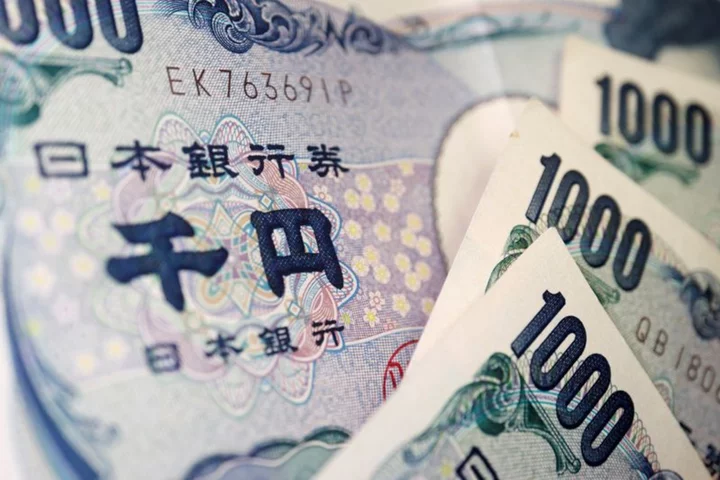By Tetsushi Kajimoto
TOKYO Japanese Finance Minister Shunichi Suzuki said on Friday that currencies should be set by markets although sudden moves are undesirable, offering no clues on intervening in the market to stem the weak yen, which is driving up import bills.
"Currencies should reflect economic fundamentals," Suzuki told reporters after a cabinet meeting. "We're closely watching currency moves."
Suzuki toed the official line on currencies, without raising the level of verbal warnings to say things like he is "deeply concerned" about a weak currency.
Late last month, the dollar hit 147.375 yen, the highest since Nov. 7. It was last at 145.50 at midday on Friday.
The yen has been on weak footing lately as investors raised bets that the U.S. Federal Reserve could continue hiking interest rates, or keep rates higher for longer as it tries to rein in inflation, while the Bank of Japan maintains its ultra-loose policy.
Traders are watching for any signs of intervention by Japanese officials to shore up the ailing currency.
However, Japanese officials have rarely escalated verbal warnings since the middle of last month against speculators trying to sell off the yen, which stood at levels where Japan conducted its first dollar-selling intervention in 24 years last September.
"There's no change to my view on currencies since I stated previously (in mid-August). There's nothing to add," Suzuki said.
Back then, Suzuki said authorities were not targeting absolute currency levels when it comes to intervening in the market, as the dollar broke above 145 yen.
The weak yen has driven up import bills for fuel and foods, depriving households of purchasing power and prompting Prime Minister Fumio Kishida to scramble for measures to subsidise gasoline retail prices and to mitigate rises of utility bills.
The BOJ remains an outlier among global central banks with its loose monetary policy, even as it slowly shifts away from yield curve control.
(Reporting by Tetsushi Kajimoto; Editing by Tom Hogue and Kim Coghill)









